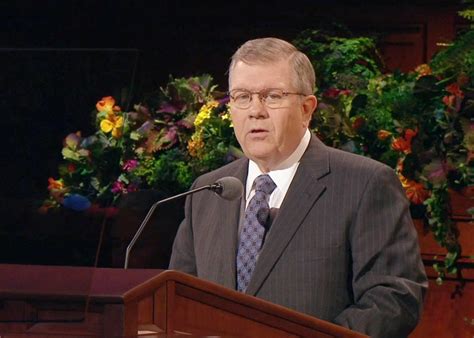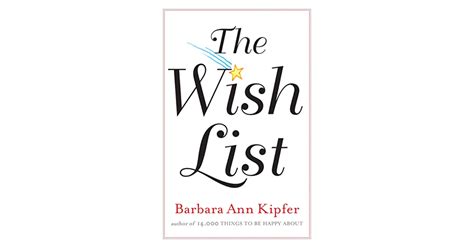A Quote by Neil Gaiman
We look about in puzzlement at our world, with a sense of unease and disquiet. We think of ourselves as scholars in arcane liturgies, single men trapped in worlds beyond our devising. The truth is far simpler: there are things in the darkness beneath us that wish us harm.
Related Quotes
A sense of duty pursues us ever. It is omnipresent, like the Deity. If we take to ourselves the wings of the morning, and dwell in the uttermost parts of the sea, duty performed or duty violated is still with us, for our happiness or our misery. If we say the darkness shall cover us, in the darkness as in the light our obligations are yet with us.
It is difficult to see ourselves as we are. Sometimes we are fortunate enough to have good friends, lovers or others who will do us the good service of telling us the truth about ourselves. When we don't, we can so easily delude ourselves, lose a sense of truth about ourselves, and our conscience loses power and purpose. Mostly, we tell ourselves what we would like to hear. We lose our way.
It is easy to imagine fantasy as physical and myth as real. We do it almost every moment. We do this as we dream, as we think, and as we cope with the world about us. But these worlds of fantasy that we form into the solid things around us are the source of our discontent. They inspire our search to find ourselves.
Today, the reason we haven't found our grail, the key to who we are as women, is because we look for it in worlds of false power, the very worlds that took it away from us in the first place. Neither men nor work can restore our lost scepter. Nothing in this world can take us home. Only the radar in our hearts can do that, and when it does, ... 'We will light up like lamps, and the world will never be the same again.'
Theologians talk about a prevenient grace that precedes grace itself and allows us to accept it. I think there must also be a prevenient courage that allows us to be brave - that is, to acknowledge that there is more beauty than our eyes can bear, that precious things have been put into our hands and to do nothing to honor them is to do great harm. And therefore, this courage allows us, as the old men said, to make ourselves useful. It allows us to be generous, which is another way of saying exactly the same thing.
It is the Fourth Instinct (the spirit - RJ) that urges us to exceed ourselves ... by awakening our intuitive selves, and striving to be all that we were intended to be. It takes us beyond self-centeredness and enables us to resist the combined forces of indifference and meaninglessness. It awakens us to a sense of responsibility for those most in need of our society as well as for that world that future generations will inherit.
Our Heavenly Father is the Father of our spirits, and Jesus Christ is the Creator of this world. They know and understand us and the world around us better than anyone else. Looking to a higher source for knowledge and power can help us far more than relying on the wisdom of the world. We need to have the Spirit and look to the prophets and our priesthood leaders. We also need to look to the scriptures, which contain God's words to holy men.
Hopelessness may be the saddest word in our language. Despair is the enemy of our souls. It can paralyze us, halt our progress, and cause us to lose our way. But hope awakens us like a light shining in the darkness. We can endure all things when our hope is centered in one who will never fail us-our Savior, Jesus Christ, who is the light of the world.
Prayer is not a way to get what we want to happen, like the remote control that comes with the television set. I think that prayer may be less about asking for the things we are attached to than it is about relinquishing our attachments in some way. It can take us beyond fear, which is an attachment, and beyond hope, which is another form of attachment. It can help us remember the nature of the world and the nature of life, not on an intellectual level but in a deep and experiential way. When we pray, we don't change the world, we change ourselves. We change our consciousness.
The significance of our lives and our fragile planet is then determined only by our own wisdom and courage. We are the custodians of life's meaning. We long for a Parent to care for us, to forgive us our errors, to save us from our childish mistakes. But knowledge is preferable to ignorance. Better by far to embrace the hard truth than a reassuring fable. If we crave some cosmic purpose, then let us find ourselves a worthy goal.
Also our fellow competitors, who are indeed the people just mentioned - we do not compete with men who lived a hundred centuries ago, or those yet not born, or the dead, or those who dwell near the Pillars of Hercules, or those whom, in our opinion or that of others, we take to be far below us or far above us. So too we compete with those who follow the same ends as ourselves; we compete with our rivals in sport or in love, and generally with those who are after the same things; and it is therefore these whom we are bound to envy beyond all others. Hence the saying.
Wishing is good for us.
Daydreams, fantasies, castles in the air, and aspirations
All drive us forward,
Impel us to make things happen.
They also tell us a lot about ourselves.
Our wishes come straight from our core,
And they are loaded with vital information
About who we are and who we can become.
Keeping track of our wishes
Helps us tap into the energy
That propels us to go after our happiness.
It is a horrible idea that there is somebody who owns us, who makes us, who supervises us - waking and sleeping - who knows our thoughts, who can convict us of thought crime, thought crime, just for what we think, who can judge us while we sleep for things that might occur to us in our dreams, who can create us sick, as apparently we are - and then order us, on pain of eternal torture to be well again.
To demand this, to wish this to be true is to wish to live as an abject slave.
I don't wish to defend everything that has been done in the name of Utopia. But I think many of the attacks misconceive its nature and function. As I have tried to suggest, utopia is not mainly about providing detailed blueprints for social reconstruction. Its concern with ends is about making us think about possible worlds. It is about inventing and imagining worlds for our contemplation and delight. It opens up our minds to the possibilities of the human condition.


































